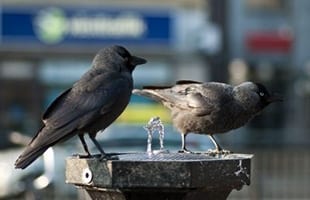
Europeans use them; 60 percent of Japan uses them; 90 percent of Venezuelans use them. They’re called bidets: basins that jet water straight to the parts that need to be cleaned after you’ve used the bathroom. And according to Scientific American, they could play a major part in living a green, environmentally sustainable life. But for some reason, North Americans are not on board.
Are they good for the environment?
Americans use 36.5 billion rolls of toilet paper annually, which can make you wonder how many trees are being sacrificed to keep our derrieres only somewhat clean. Some estimates suggest that making a shift from toilet paper to bathroom bidets could potentially save 15 million trees.
Justin Thomas, editor of the website metaefficient.com, told Scientific American that he believes bidets are “a key green technology.” And it’s more than just saving trees from the cruel fate of serving as genital and fecal wipes. According to Thomas, it takes 473,587,500,000 gallons of water, 253,000 tons of chlorine and 17.3 terawatts of electricity every year to create the 36.5 million rolls of toilet paper needed by Americans. That’s excluding the amount of resources and energy required to package and transport them.
Won’t they use more water?
Simply put, yes. But bidet advocates make the case that the extra water is marginal considering how much water is already being wasted in a single toilet flush. (Depending on what kind of toilet you have, each flush utilizes anywhere between 1.5 and five gallons of water and that’s reportedly 24 gallons of water each day. In 2012, that amounted to more than $5 billion dollars worth of drinking water a year.) Bidets will consume more water — water for flushing plus water for cleaning — but it’s supposedly worth it in the end due to the all the toilet paper we save.
Are they hygienic?
One reason for the aversion to bidets is people’s concern of how sanitary they are. But medical professionals generally agree that bidets are hygienic, are gentler on your body than toilet paper and do a more thorough job of cleaning.
